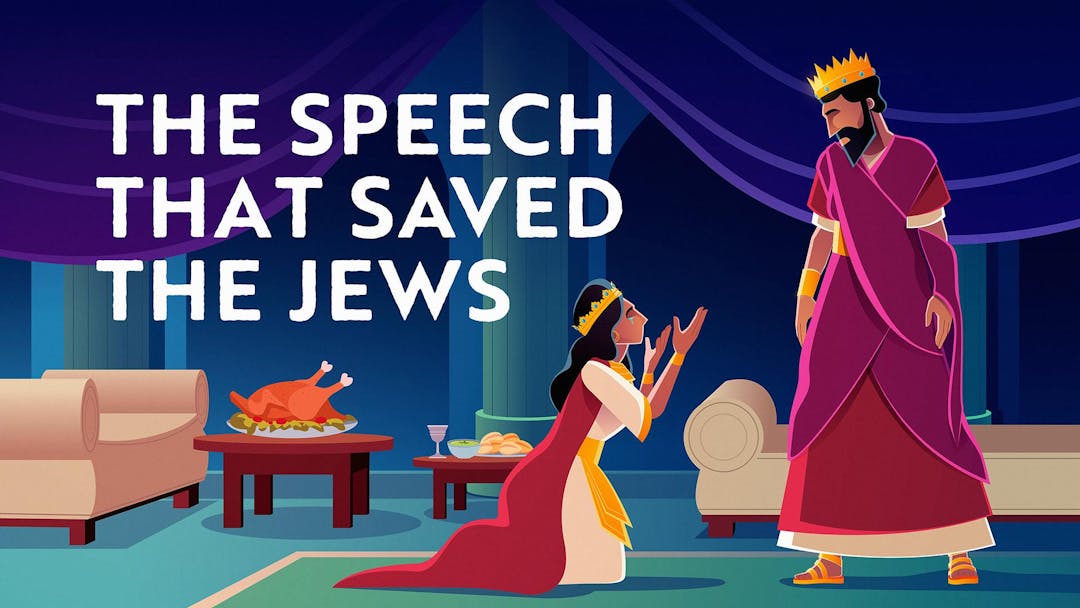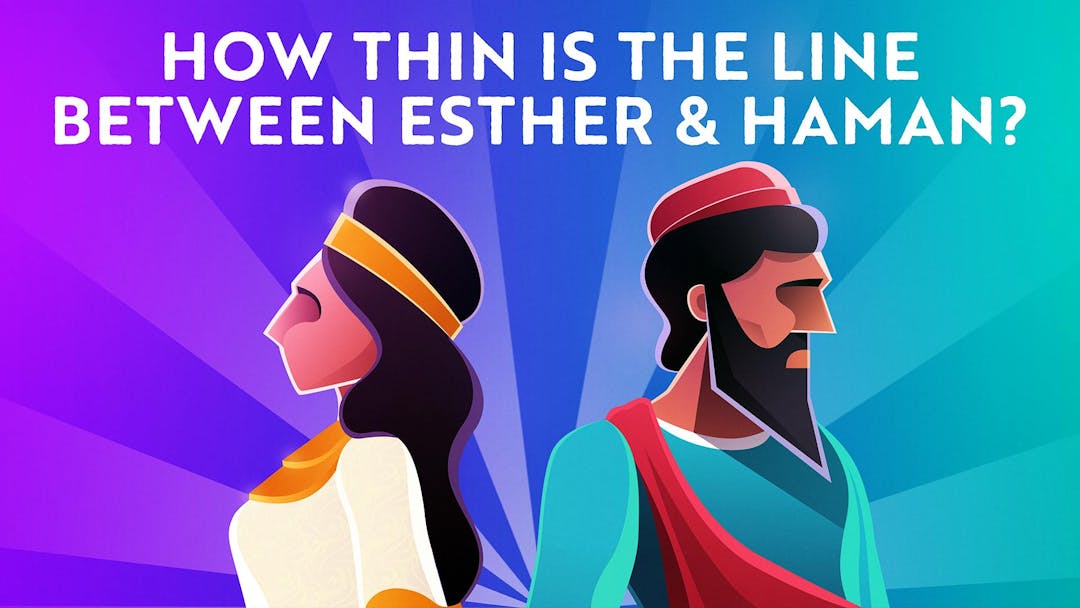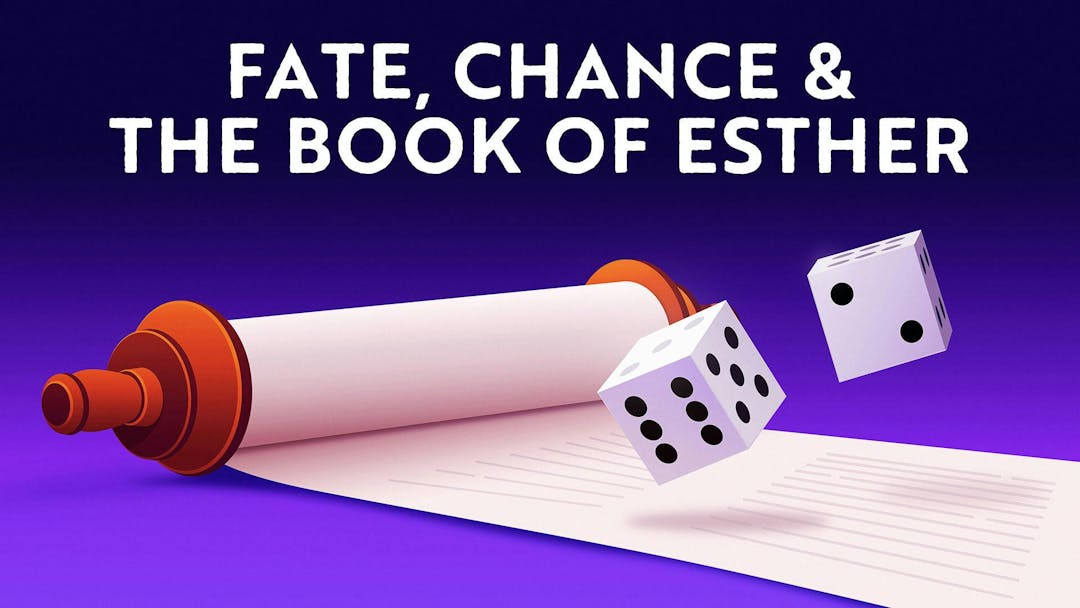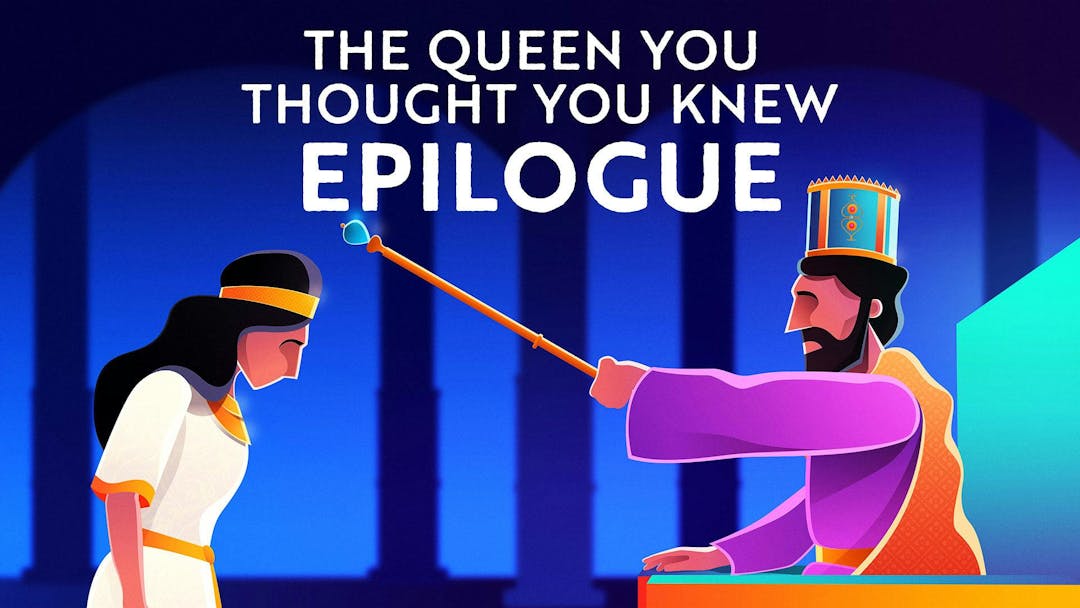Start your free trial today to unlock the full library and enjoy unlimited and uninterrupted access.
Get StartedThe Queen You Thought You Knew (Part 1 of 7)
The Queen You Thought You Knew
The Book Of Esther Explained
On Purim night, there you are in the synagogue, listening to the Megillah reading, a story you’ve known since childhood, and perhaps you’re kind of… bored? Reading the Megillah year after year feels a bit like being back in primary school. But that’s because the story we learn as a child shouldn’t be the story we understand as an adult. It’s a fair question – do you really only want the kid’s version of the Megillah? Aren’t you ready for the adult meaning?
Sometimes our familiarity of the Book of Esther can work against us; we know so well how each character behaves that we don’t see what actions they could have taken. In fact, questions pervade the Megillah – obvious questions. Why did Esther wait so long to save the Jewish race? Why was Haman so intent on destroying the Jews? If we look at these questions as windows, crawling through them could led us to understand the adult meaning of the Megillah.
Rabbi Fohrman asks us to clear our minds about what we know, and try to see the Megillah for the first time. He introduces the story we've known since childhood and suggests that perhaps, by reading the text through a different lens, it can take on a different meaning.
In the following videos, we place ourselves in the shoes of three Purim characters from the Book of Esther. Join Rabbi Fohrman as he explores the choices of Esther, Haman, and King Achashverosh, suggesting that the key to understanding the Book of Esther and unlocking the Megillah's meaning is in understanding their behavior.
To read the book in its entirety check out "The Queen You Thought You Knew" in our shop.
Check out other great purim videos at Aleph Beta, including The Meaning of Purim, Purim Mitzvot and The Story of Haman.
Want to watch the full video for free?
Enter your email and we’ll send you a link to watch the full series free.
What is Aleph Beta?
Aleph Beta is a unique kind of Torah library. Led by our founder, Rabbi David Fohrman, we are dedicated to high-level, textual Torah learning for adults that is intellectually and spiritually sophisticated, that enlivens your Jewish practice and helps you forge a deeper connection to God. Whether you’ve been learning in yeshiva for years or you’re just beginning your Torah journey, you’re sure to find something meaningful and surprising waiting for you here.
Browse our library of over 1,000 beautifully produced animated videos, podcasts, deep dive courses, and printable guides. Topics include the weekly parsha, Jewish holidays & fast days, laws & mitzvot, prayers, relationships, big philosophical ideas and more. Have something to say at the Shabbos table that will amaze your family and guests and bring deep meaning into their lives.












